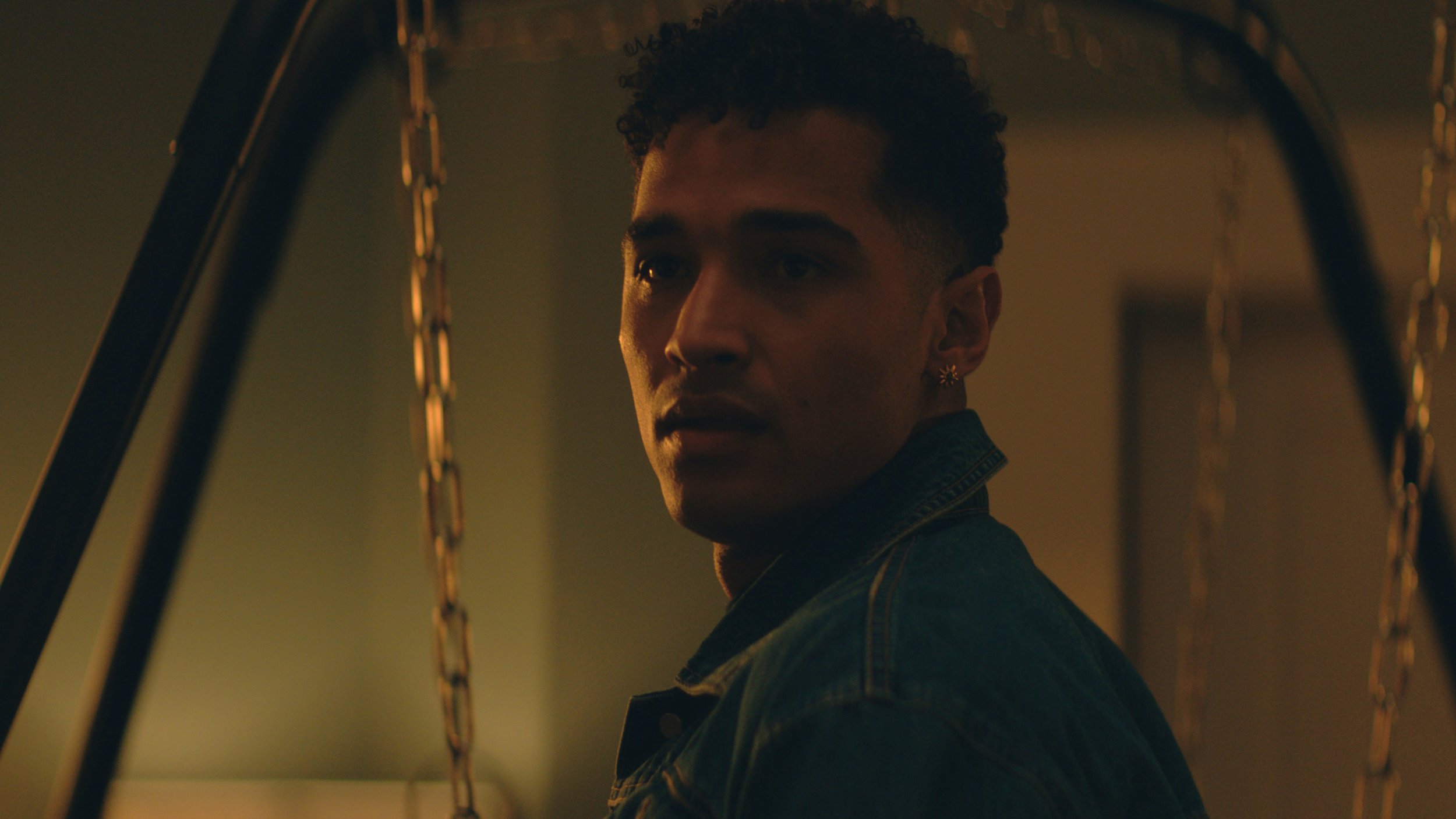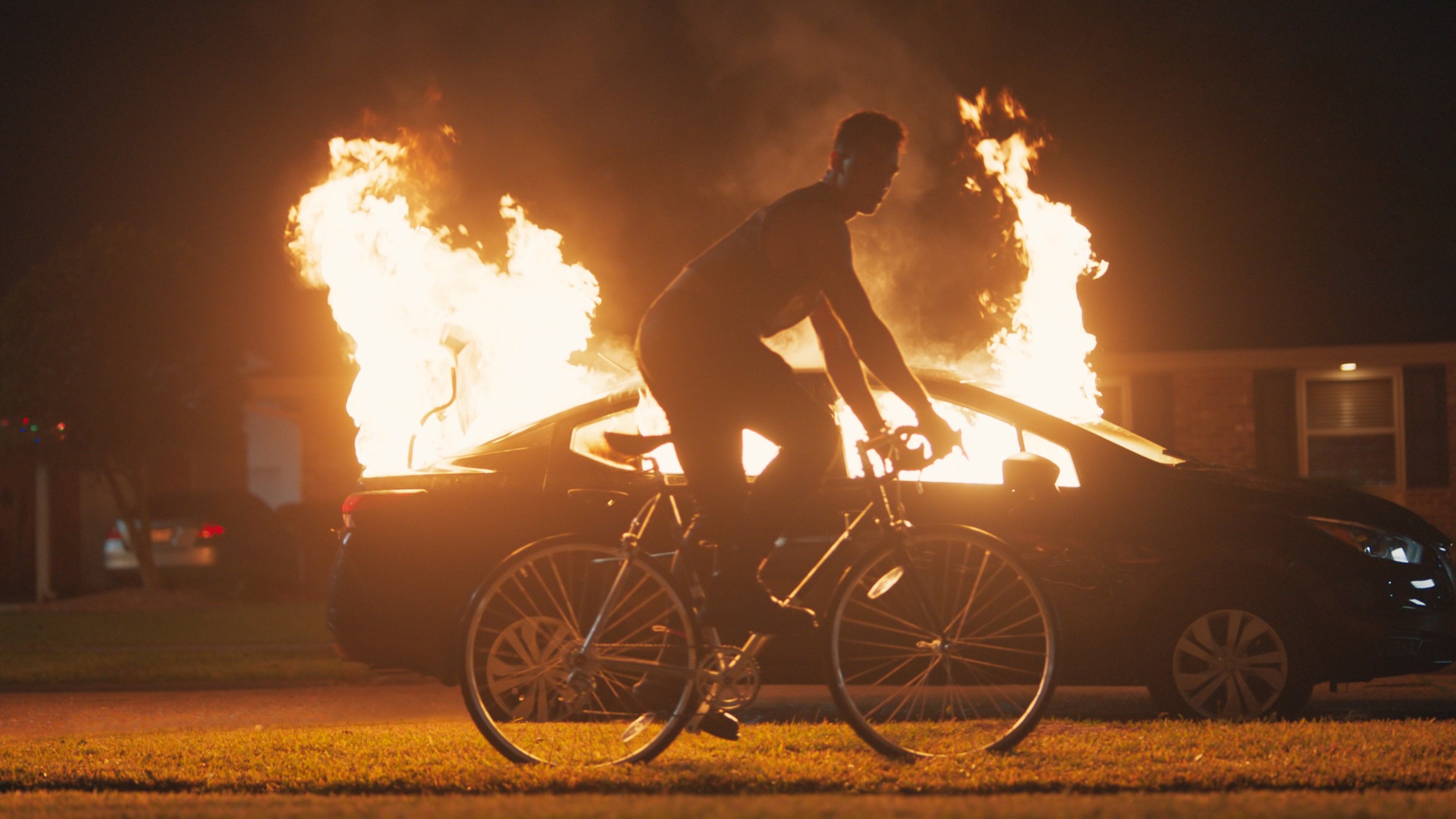Peacock Reboots a Gay Staple with Unexpected Success QUEER AF
By Arnold Wayne Jones
If you’re old enough (and gay enough) to remember watching when Russell T. Davies’ original British series Queer as Folk debuted more than 20 years ago – I, sadly, am – then you will never forget the adrenaline-rush of seeing sexually-active gay men engaged in realistic-seeming sex without AIDS, shame or suicide being the dramatic driving force. It was staggering in its radicalism. There was no marriage equality; it was still GLBT – the “A” hadn’t been added, the letters reversed, the Q codified. It was sexy, frivolous, and its politics was that of stentorian outrage at closet-cases, homophobia and hypocrisy. The original QAF – and its American remake, which ran on pay-cable for five seasons – was a kind of fantasy soap opera of bed-hopping, shade-throwing and melodramatic cliffhangers. (Question: Should we call a gay soap opera a “lube musical”? But I digress.)
We live in a new world now, although not always a better world. Gay weddings are now called “weddings,” Grindr gets joked about in primetime, COVID has replaced HIV as the virus of the moment, trans kids are… well, a thing. But there’s also the Pulse nightclub shooting, anti-trans legislation and the current SCOTUS membership. We’ve come far, but there’s still far to go.
Which is why, as I discovered slightly to my surprise, that we really needed a reboot of Queer as Folk. I needed convincing; I’m generally opposed to rehashing old properties simply because Hollywood is so bereft of courage or originality that it assumes audiences only want what they already know. (Unfortunately, they are often right.) Why revisit the same characters, or “new” characters regurgitating the same ideas, just for clicks and a 4.5 in the demo? The fact that this QAF was coming to NBC’s Peacock – the buggiest and boringest of the major streaming services from the most middle-brow of networks – gave me little hope.
Then I watched the first episode. And the second. And third. And it dawned on me that, of all retro series reboots out there, this may be the one that has the best chance to seem more relevant than the original.
In some ways, this is a critique of the American version. A dirty little secret: Most gays will concede that we often hate-watched that show. We wanted to see idealized versions of our own lives on screen (hard bodies glistening with perspiration in soft-core lighting), but these scenes were sandwiched between stereotypes, often painfully overwrought dialogue and predictable plotting. Most episodes left you with the same dissatisfaction as a Diet Coke: You asked for it, but the empty aftertaste left you wanting something better. The Peacock version needed to improve upon those feelings, and so far, it has.
The first amazement for me was the opening scene: A fairly explicit and rolicking anal sex scene that shows more ass and abs than I expected from NBC. The second amazement: Diversity. Another reason why the earlier incarnation was so disappointing was the total lack of color in the primary cast: Of the dozen or so regulars, every single one was as white as a Trump rally. There were token lesbians, a mix of tops and bottoms, twinks and doms but virtually no bears, no queens, and no POC. Not so this time out. The lesbian couple are mixed race – a butch black dyke and a thin lipstick transwoman; the local slut is mixed, the adopted son of white parents (including an almost unrecognizable Kim Cattrall, doing excellent character work) with a brother on the spectrum (Special star Ryan O’Connell); there are Latinos, gender-fluid teens, otters, a disabled guy and Juliette Lewis. (Sadly, no senior queers – hey, it’s still a gay fantasy.)
Another big difference is how the stakes seem contemporary and relevant. There’s less worrying about HIV (PrEP!) and molly overdoses and more mass shootings, social media awareness and criticism of faux allies. But there are still the cliches: Young gays having/wanting kids (heteronormative ideals are the flesh-eating viruses of most mainstream portrayals of gay culture); superficial conversations about overwrought emotions; secondary characters praising/apologizing for the anti-heroic stars; and so, so many pretty boys fucking wildly to fill in for plot (OK, I admit I like that part a lot). The trade off works, though.
Courtesy of NBC/Universal
I’ve enjoyed the acting (other than O’Connell, who is sweet but never convincing in his line delivery) and the mancandy helps the bad dialogue go down easier. I’ll definitely watch all eight episodes and probably wait for another season. And maybe two decades from now, another version will come along and rewrite the gay script over again for a future generation. And maybe it will be Queer AF too.






